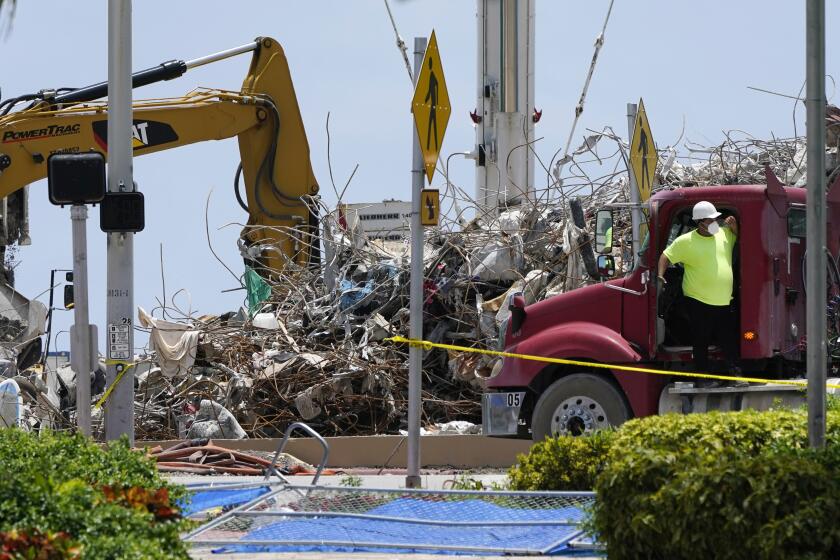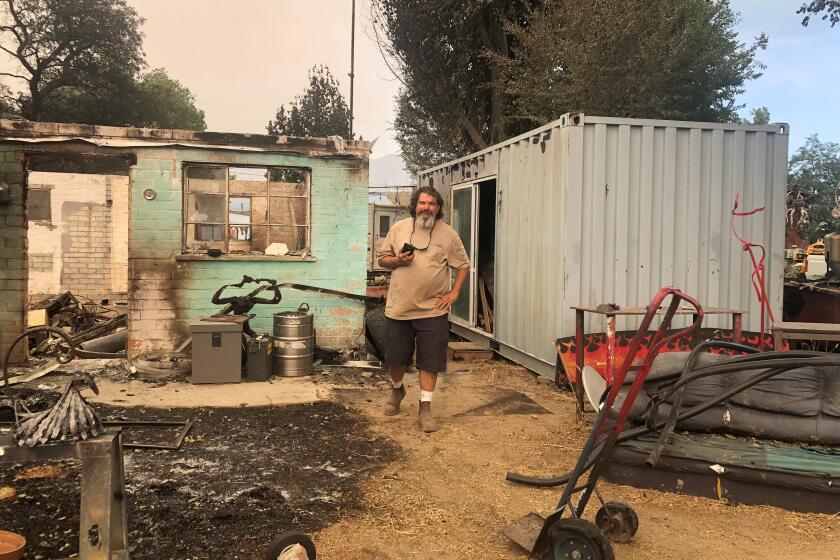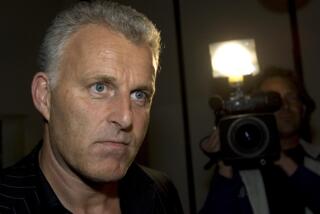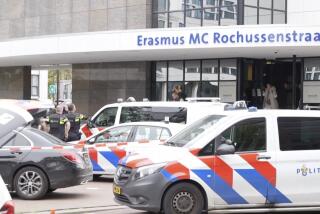Dutch crime reporter shot in brazen attack last week dies of his wounds
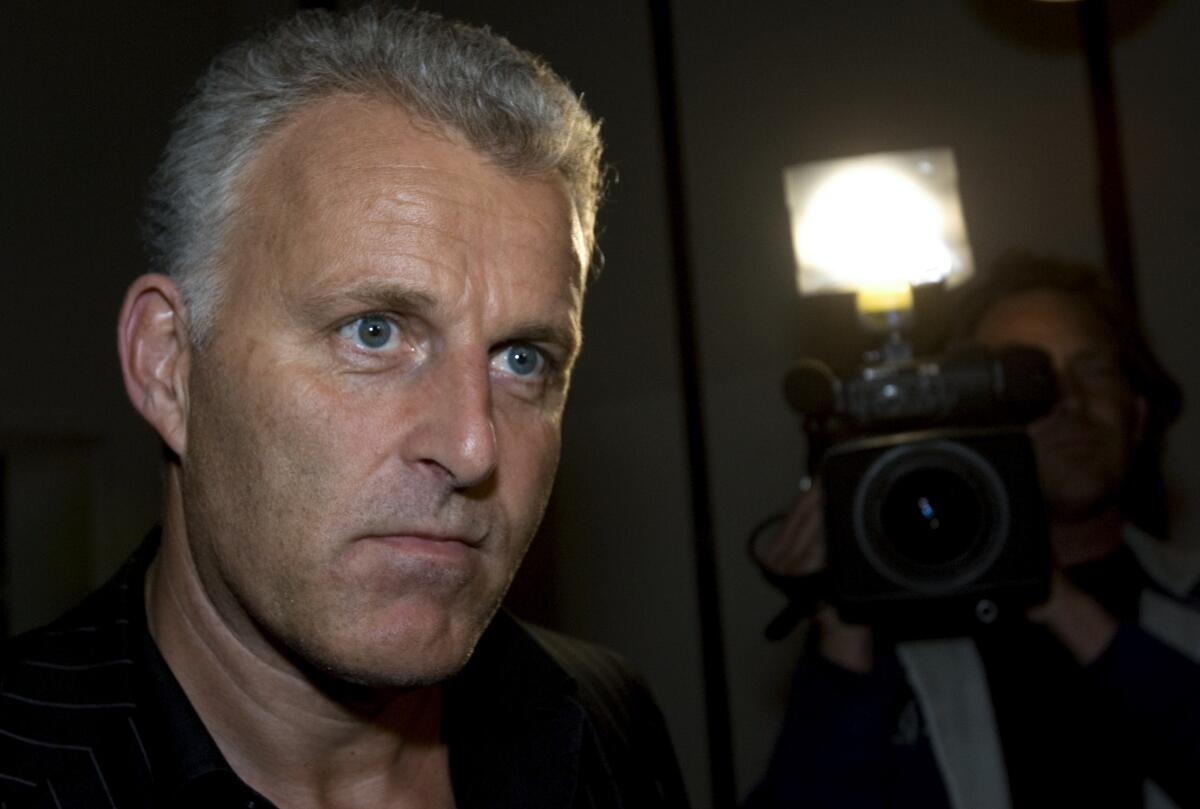
- Share via
THE HAGUE — Peter R. de Vries, a renowned Dutch crime reporter shot last week in a brazen attack in Amsterdam, has died, Dutch media reported Thursday, citing a statement from his family.
“Peter fought to the end, but was unable to win the battle,” RTL, the Dutch network De Vries regularly worked for, cited the family statement as saying.
De Vries, 64, rose rapidly from a young cub reporter to become the Netherlands’ best-known journalist. He was a pillar of support for families of slain or missing children, a campaigner against injustice and a thorn in the side of gangsters in the Netherlands’ increasingly violent underworld.
The family statement said he died surrounded by loved ones. The statement requested privacy for De Vries’ family and partner “to process his death in peace.”
“Peter has lived by his conviction: ‘On bended knee is no way to be free,’” the statement said. “We are unbelievably proud of him and at the same time inconsolable.”
De Vries, who was widely lauded for his fearless reporting on the Dutch underworld, was shot July 6 after making one of his regular appearances on a current affairs television show. He had recently been an advisor and confidant to a witness in the trial of the alleged leader of a gang that police described as an “oiled killing machine.”
Recordings of 911 calls after the Miami-area condo tower collapse show disbelief, panic and confusion as people tried to comprehend what happened.
“Peter R. de Vries was always dedicated, tenacious, afraid of nothing and no one. Always seeking the truth and standing up for justice,” Prime Minister Mark Rutte said in a tweet. “And that makes it all the more dramatic that he himself has now become the victim of a great injustice.”
Two suspects have been detained in the shooting. Dutch police said the suspected shooter is a 21-year-old Dutchman. A 35-year-old Polish man living in the Netherlands is accused of driving the getaway car. They were arrested not long after De Vries was gunned down.
The suspected gangland leader, Ridouan Taghi, was extradited to the Netherlands from Dubai in 2019. He remains jailed while standing trial along with 16 other suspects.
Dutch King Willem-Alexander last week called the shooting of De Vries “an attack on journalism, the cornerstone of our constitutional state and therefore also an attack on the rule of law.”
High rents drove Mike Snook out of his arts-collective warehouse in Oakland. He relocated to Doyle, where a wind-swept wildfire wrought devastation.
The slaying also struck a chord elsewhere in Europe, where killings of reporters are rare and where the slayings of journalists in Slovakia and Malta in recent years raised concerns about reporters’ safety in developed, democratic societies.
“We might disagree with a lot we see in our media, but we have to agree that journalists investigating potential abuses of power are not a threat but an asset to our democracies and our societies,” European Commission President Ursula von der Leyen told the European Parliament last week.
De Vries won an International Emmy in 2008 for a television show he made about the disappearance of American teenager Natalee Holloway while she was on holiday in the Dutch Caribbean island of Aruba in 2005.
In 2018, while acting as a spokesman for the family of an 11-year-old boy who was abused and killed in 1998, De Vries appealed for tips as to the whereabouts of a suspect identified in a DNA probe.
Start your day right
Sign up for Essential California for the L.A. Times biggest news, features and recommendations in your inbox six days a week.
You may occasionally receive promotional content from the Los Angeles Times.
“I can’t live with the idea that he won’t be arrested,” De Vries said when appealing for help at a televised press conference. “I won’t rest until it happens.”
The suspect was arrested a few weeks later in Spain and convicted last year in the death of the boy, Nicky Verstappen.
De Vries’ comment about the suspect in Nicky’s slaying summed up the tenacity that was a cornerstone of a career that saw him report on some of the Netherlands’ most notorious crimes, including the 1983 kidnapping of beer magnate Freddy Heineken.
Acting on a tip, De Vries tracked down one of the kidnappers in Paraguay in 1994.
He befriended another of the kidnappers, Cor van Hout, who was later shot to death in Amsterdam. Another of the kidnappers, Willem Holleeder, who was van Hout’s brother-in-law, was convicted in 2019 of inciting the killings of van Hout and four other people. Holleeder was sentenced to life imprisonment.
More to Read
Sign up for Essential California
The most important California stories and recommendations in your inbox every morning.
You may occasionally receive promotional content from the Los Angeles Times.
